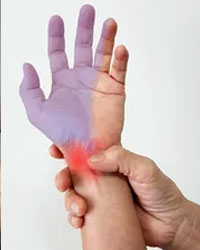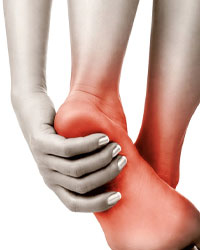Fibromyalgia in Edmonton
Fibromyalgia is a condition that affects muscles and soft tissues, leading to widespread discomfort, stiffness, and fatigue. It can impact daily life, making activities more challenging due to persistent muscle tension and reduced flexibility. Physiotherapy can help manage movement difficulties, improve mobility, and address muscle function. Our clinic in Edmonton provides physiotherapy to support individuals dealing with fibromyalgia.
Common Symptoms of Fibromyalgia
Fibromyalgia is characterized by widespread muscle discomfort, but it can also lead to additional physical challenges. Some of the most common symptoms include:
- Muscle and joint stiffness, especially after periods of inactivity
- Generalized discomfort or tenderness throughout the body
- Fatigue that affects daily activities
- Reduced focus or concentration, sometimes referred to as “fibro fog”
- Increased sensitivity to touch, pressure, or temperature
- Difficulty sleeping, which may contribute to muscle tension
While fibromyalgia primarily affects muscles and soft tissues, it can also influence balance, coordination, and overall mobility. Some individuals may experience fluctuations in symptom severity, with periods of increased discomfort or fatigue.
Factors That May Contribute to Fibromyalgia Symptoms
The exact cause of fibromyalgia is not fully understood, but several factors may contribute to symptom intensity:
- Muscle tension that leads to stiffness and discomfort
- Stress or increased sensitivity to physical sensations
- Postural imbalances that add strain to muscles and joints
- Reduced physical activity, leading to further stiffness
- Sleep disturbances that prevent proper muscle recovery
Although fibromyalgia does not cause structural damage to muscles or joints, the persistent tension and discomfort can impact mobility and daily function.
Areas Commonly Affected by Fibromyalgia
While fibromyalgia is a widespread condition, certain areas of the body are more frequently affected. These may include:
Neck and Shoulders
Muscle tightness in the upper body can lead to difficulty with posture and movement.
Lower Back and Hips
Persistent discomfort in the lower back and hip area can affect standing, walking, and overall mobility.
Hands and Feet
Some individuals experience sensitivity or stiffness in smaller joints, making fine motor tasks more difficult.
Physiotherapy for Fibromyalgia
Physiotherapy can help address movement limitations, improve flexibility, and support muscle function. Some of the key approaches include:
Gentle Strength and Stability Exercises
Engaging in controlled movements can help maintain muscle function without excessive strain. Low-impact exercises may improve stability while minimizing discomfort.
Postural Training
Posture plays a role in muscle tension, particularly in the neck, shoulders, and lower back. Adjusting posture during daily activities can help reduce strain on affected muscles.
Hands-On Therapy
Manual therapy techniques may help with muscle relaxation, circulation, and overall flexibility. These approaches aim to ease muscle stiffness and improve movement.
Movement and Stretching Techniques
Stretching exercises can assist with muscle tightness, helping with movement efficiency throughout daily activities.
The Role of Movement in Fibromyalgia Management
Maintaining mobility is an important part of managing fibromyalgia. While excessive activity may lead to fatigue, gentle movement can help with:
- Reducing muscle stiffness
- Supporting flexibility
- Improving coordination and balance
Physiotherapy sessions can focus on gradual movement adjustments, helping individuals find an approach that works for their needs.
Daily Strategies for Managing Fibromyalgia Symptoms
In addition to physiotherapy, certain adjustments to daily routines may help with symptom management:
- Adapting movements: Adjusting how daily activities are performed can help reduce muscle strain.
- Incorporating gentle stretching: Regular mobility exercises may support flexibility.
- Balancing activity and rest: Engaging in movement while allowing time for recovery can help with overall function.
Support for Fibromyalgia in Edmonton
Our clinic in Edmonton provides physiotherapy for individuals managing fibromyalgia. Whether addressing mobility, muscle function, or movement adjustments, we are here to help.
If you are looking for physiotherapy support for fibromyalgia, contact us today to book an appointment.















